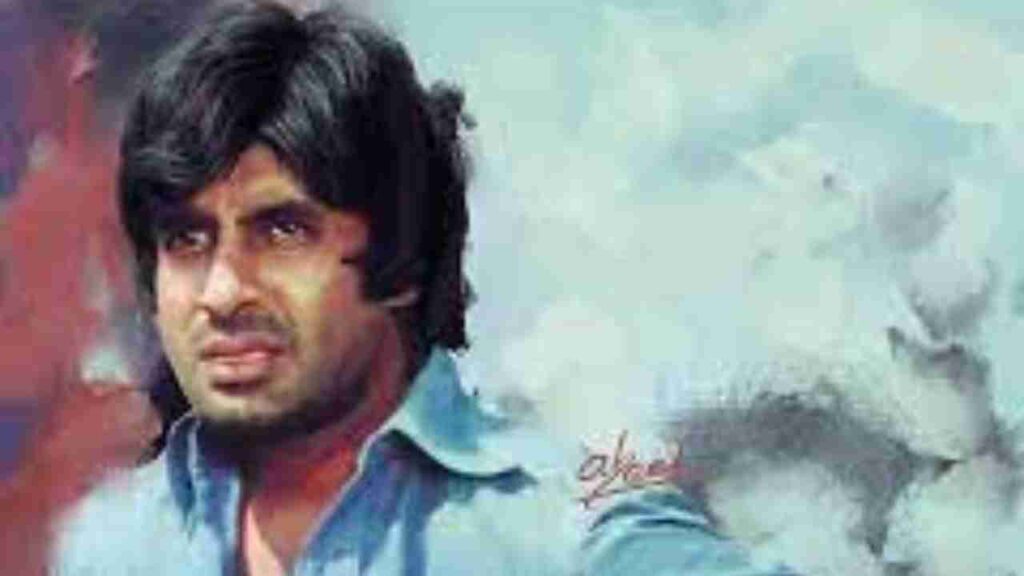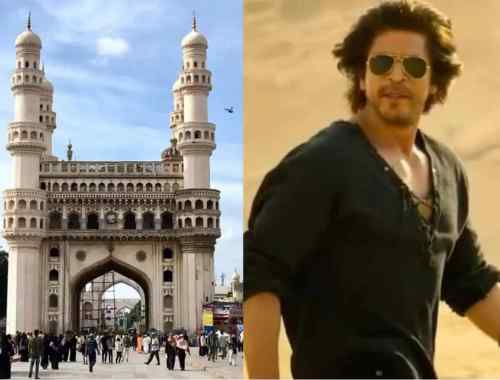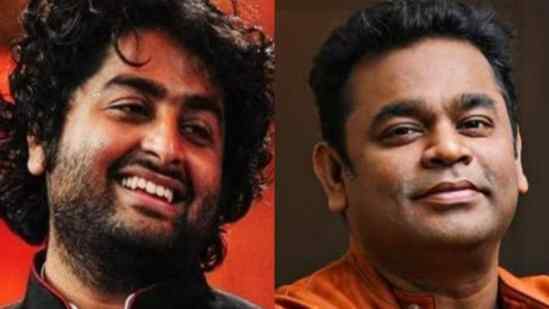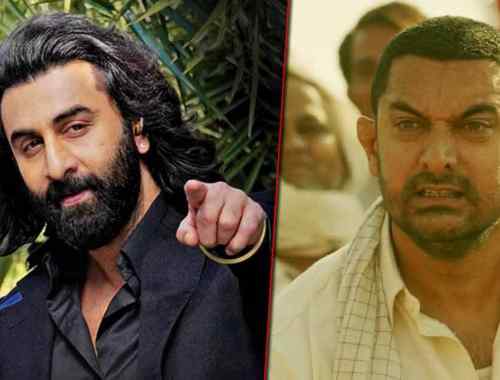50 Years of ‘Deewaar’ – As the Indian cinema classic ‘Deewaar’ approaches its golden jubilee in 2025, a look back at its monumental success reveals the film’s indelible mark on Bollywood and its pivotal role in catapulting Amitabh Bachchan to superstardom. Directed by Yash Chopra, this action-drama was not just a movie but a phenomenon that resonated with millions, remaining in theatres for an astonishing two years and establishing Bachchan as the “angry young man” of Indian cinema.
50 Years of ‘Deewaar’: The Film That Made Amitabh Bachchan a Superstar

The Unprecedented Success of 50 Years of ‘Deewaar’
When ‘Deewaar’ premiered in 1975, the Indian film industry was introduced to a narrative so compelling and a character so enduring that it would leave an indelible mark on the fabric of Bollywood. Crafted with a budget of just Rs 1.3 crore—a figure that underscores the film’s modest financial beginnings—the movie’s financial achievements speak volumes about its monumental success and the magnetic pull of its lead actor, Amitabh Bachchan. Adjusting for inflation, the budget equates to about Rs 37 crore in 2023, a modest sum by today’s standards for a film of such historical and cultural significance.
The box office numbers tell a story of unprecedented success. Grossing Rs 7.5 crore at a time when the film industry was burgeoning, ‘Deewaar’ not only recouped its production costs manifold but also became a benchmark for commercial success, with its earnings adjusted to about Rs 211 crore in today’s money. Mumbai, the heart of India’s film industry, alone accounted for Rs 1 crore of the total box office takings, highlighting the film’s massive appeal in the urban centers that often dictate cinematic trends in the country.
The film’s ability to draw an estimated 31 million people to theaters across India, with tickets priced at an average of Rs 2.40, is a testament to its widespread appeal. This level of audience engagement made ‘Deewaar’ the fourth highest-grossing Bollywood film of 1975, a year that saw the release of many significant films. But beyond its financial achievements, ‘Deewaar’ stood out for its compelling narrative and the powerful performances of its cast, especially Amitabh Bachchan, whose portrayal of the brooding and morally conflicted Vijay became a cultural icon.
The storyline of ‘Deewaar’, centered around the moral and emotional turmoil of two brothers on opposite sides of the law, struck a chord with the Indian audience. Its success was not just a result of the movie’s dramatic narrative but also the socio-political climate of the time. The 1970s in India were a period of great unrest and change, with the public grappling with issues of corruption, unemployment, and a crisis of faith in the establishment. ‘Deewaar’, with its anti-establishment themes and the portrayal of a protagonist who challenges the status quo, resonated deeply with the audience’s prevailing sentiments.
Moreover, the dialogues of 50 Years of ‘Deewaar’ , penned by the legendary duo Salim-Javed, became part of the cultural lexicon, quoted and referenced for generations. Lines like “Mere paas maa hai” (I have mother on my side) transcended the film’s narrative, embedding themselves in India’s collective consciousness.
In essence, ‘Deewaar’ was not just a film but a phenomenon that reshaped Bollywood. It challenged the traditional narratives, introduced complex characters that were flawed yet relatable, and showcased a level of storytelling depth that was unparalleled at the time. The film’s critical and commercial success paved the way for Amitabh Bachchan to become an emblematic figure in Indian cinema, embodying the “angry young man” archetype that would define his career and Bollywood’s narrative direction for years to come. The legacy of 50 Years of ‘Deewaar’ , thus, is not just in its box office numbers but in its enduring impact on Indian cinema and society at large.
ALSO READ : Amitabh Bachchan in Ramayana : Frontrunner for King Dashratha
Amitabh Bachchan: The Quintessential Megastar
In the annals of Indian cinema, few actors have managed to create an aura as magnetic and enduring as Amitabh Bachchan. His journey from a fledgling actor to the epitome of Bollywood stardom is a narrative of perseverance, talent, and an unparalleled connection with the audience. This connection is nowhere more evident than in the ritual gatherings of fans outside his residence, Jalsa, in Mumbai every Sunday. These gatherings are not just a testament to his stardom but also to the deep affection and reverence his fans hold for him, a phenomenon that spans generations.
Bachchan’s humility in the face of such adoration is noteworthy. Through various platforms, including social media, he has often expressed his gratitude towards his fans, recognizing their unwavering support as the foundation of his success. His engagement with his audience, whether through heartfelt posts on Instagram or personal interactions outside his home, reflects a reciprocal relationship built on respect and love. This bond was notably highlighted in a post where Bachchan shared a nostalgic piece of memorabilia—a ticket from ‘Deewaar’, acknowledging the role of his fans in his journey.
The film ‘Deewaar’, released in 1975, was a pivotal moment not only in Bachchan’s career but also in the shaping of Bollywood’s narrative ethos. In this film, Bachchan’s portrayal of Vijay, a character torn between moral dilemmas and familial loyalties, embodied the angst and disillusionment of the common man against a backdrop of socio-political upheaval. His performance resonated with the audience, who saw in him a reflection of their own struggles and aspirations. Bachchan’s Vijay was not just a character; he was a symbol of resistance, of the fight against injustice, and this portrayal firmly established Bachchan as the “angry young man” of Indian cinema.
This archetype, characterized by its rebellion against societal norms and the establishment, went on to define Bollywood’s leading man in the years that followed, with Bachchan himself reprising similar roles in a series of hits. However, it was ‘Deewaar’s’ complex narrative and Bachchan’s nuanced performance that set the gold standard for such characters. His ability to convey deep emotional turmoil, coupled with his commanding screen presence, made Vijay a character that was both feared and loved, and Bachchan an actor who was revered and adored.
The success of ‘Deewaar’ and the consequent rise of Amitabh Bachchan as a cinema icon cannot be overstated. It was a synergy of compelling storytelling, stellar performances, and a socio-cultural milieu ripe for change. Bachchan’s role in this confluence was crucial; he was not just an actor portraying a character but a vessel for the collective consciousness of a society seeking change. His performances in ‘Deewaar’ and similar films offered a form of catharsis for the audience, a means to vicariously confront and combat the injustices of their own lives.
Today, Amitabh Bachchan’s legacy is multifaceted—spanning across dramatic roles, action heroes, and even comedic turns. Yet, it is his portrayal of the “angry young man” that remains indelibly etched in the public’s imagination, a testament to the profound impact of his performances and the timeless appeal of films like ‘Deewaar’. Bachchan’s career is a reminder of the power of cinema to reflect, shape, and sometimes even challenge the societal norms, with the actor himself standing as a colossus in the landscape of Indian film, beloved by fans across the world.
The Enduring Legacy of ‘Deewaar’: A Cultural Milestone
‘Deewaar’, released in 1975, stands as a towering achievement in Indian cinema, not only for its box office success but for its profound impact on society, the film industry, and the cultural zeitgeist. The ensemble cast, led by Amitabh Bachchan and including notable talents like Shashi Kapoor, Neetu Singh, Nirupa Roy, and Parveen Babi, brought to life a narrative that delved deep into the moral complexities and existential dilemmas faced by individuals caught in the crosshairs of socio-political upheaval.
The film transcended the conventional binaries of good versus evil, instead presenting characters that were nuanced and layered, making the audience empathize with their struggles and moral conflicts. This nuanced portrayal of characters and their dilemmas played a significant role in ‘Deewaar’s’ widespread appeal, allowing it to resonate with a diverse audience base and ensuring its place in the annals of Bollywood as a classic.
One of the most remarkable aspects of ‘Deewaar’s legacy is how its dialogues and scenes have permeated the Indian cultural lexicon. The film’s lines, especially those delivered by Bachchan, have become iconic, quoted by people across generations and various walks of life. This cultural penetration underscores the film’s profound impact, highlighting its narrative strength and the universal themes it explored.
A recent gesture by Amitabh Bachchan, sharing a video featuring a ‘Deewaar’ movie ticket priced at Rs 15, served not just as a trip down memory lane for countless fans but also as a reminder of the film’s historical significance and its timeless appeal. This piece of memorabilia, while small, encapsulates the enormity of the film’s legacy and its continued relevance in contemporary discourse.
As 50 Years of ‘Deewaar’ anniversary has come, its legacy is multifaceted, reflecting not just on Amitabh Bachchan’s illustrious career but also on the broader contours of the Bollywood industry and its evolution. The film’s success heralded a new era in Indian cinema, where storytelling was not afraid to explore the darker corners of society and human psyche, thereby paving the way for a more nuanced and realistic portrayal of characters and situations.
Moreover, ‘Deewaar’s impact extends beyond the confines of the film industry, influencing Indian society by sparking conversations around morality, justice, and the socio-economic disparities that plague it. The film has become a cultural touchstone, a reference point for discussions on cinema’s power to reflect and shape societal values and norms.
In retrospect, ‘Deewaar’ is much more than a cinematic success story; it is a cultural milestone that continues to inspire, captivate, and engage audiences across generations. Its legacy is a testament to the power of compelling storytelling, stellar performances, and the indelible connection between art and its audience. As we commemorate this masterpiece’s upcoming anniversary, ‘Deewaar’ stands as a beacon of Indian cinema’s rich history, celebrating the enduring legacy of Amitabh Bachchan and the timeless appeal of stories that touch the very core of the human spirit.
FAQs About ‘Deewaar’ and Amitabh Bachchan:
- What is the significance of the film ‘Deewaar’ in Indian cinema?
‘Deewaar’ (50 Years of ‘Deewaar’ )is a landmark film in Indian cinema, released in 1975, known for its exceptional success both critically and commercially. It played a pivotal role in establishing Amitabh Bachchan as the “angry young man” and redefined the narrative and portrayal of protagonists in Bollywood.
- How much was the budget of ‘Deewaar’ and what were its box office earnings?
The film was made on a modest budget of Rs 1.3 crore in 1975 (equivalent to Rs 37 crore in 2023). It went on to gross Rs 7.5 crore at the Indian box office (equivalent to Rs 211 crore in 2023), making it one of the highest-grossing Bollywood films of its time.
- Who were the main cast members of ‘Deewaar’?
The main cast included Amitabh Bachchan, Shashi Kapoor, Neetu Singh, Nirupa Roy, Parveen Babi, and others. Their performances contributed to the film’s critical acclaim and enduring legacy.
- What impact did ‘Deewaar’ have on Amitabh Bachchan’s career?
‘Deewaar’ marked a turning point in Amitabh Bachchan’s career, establishing him as the “angry young man” archetype. The film’s success propelled him to superstardom, and his portrayal of Vijay became iconic, influencing the trajectory of his future roles.
- How did ‘Deewaar’ influence Indian society and cinema?
‘Deewaar’ had a profound impact on Indian society, sparking conversations about morality, justice, and socio-economic disparities. Its success influenced the Bollywood industry, setting a precedent for more nuanced and realistic storytelling.
- What is the enduring legacy of ‘Deewaar’ according to Amitabh Bachchan?
As the film approaches its 50th anniversary, Amitabh Bachchan has shared a video featuring a ‘Deewaar’ movie ticket, emphasizing its historical significance and timeless appeal. The legacy of ‘Deewaar’ serves as a reminder of its impact on Bachchan’s career, Bollywood, and its continued resonance with audiences worldwide.
- How did Amitabh Bachchan acknowledge his fans in connection with ‘Deewaar’?
Amitabh Bachchan has a dedicated fan following, evident in the weekly gatherings outside his residence. In a heartfelt Instagram post, he credited his fans for his success, acknowledging their support and expressing gratitude. This connection with his audience is a recurring theme in his interactions.
- What role did ‘Deewaar’ play in shaping the “angry young man” image of Amitabh Bachchan?
‘Deewaar’ was instrumental in establishing Amitabh Bachchan as the “angry young man” of Indian cinema. His portrayal of Vijay, grappling with moral dilemmas, showcased a new archetype that resonated with audiences and became synonymous with Bachchan’s cinematic identity.
ALSO READ : Biggest Flop of Salman Khan : A Box Office Flop That Reverberated Across Borders















